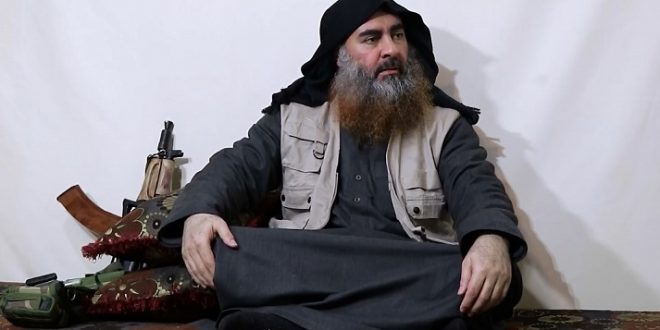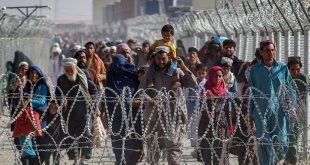Abu Bakr al-Baghdadi, the emir of the self-proclaimed Islamic State or Daesh terrorist group which also has IS Khorasan ‘chapter’ active in Afghanistan, has died in an American raid in Syria. The US President Donald Trump proudly announced this on Sunday as he explained the US troops’ operation on the shadowy terrorist’s hideout. The notorious Iraqi terrorist met his end after detonating a suicide vest while reportedly killing three of his children with him. The Afghan government has strongly welcomed the US forces’ operation that led to the death of Baghdadi with Afghan officials believing that the militant faction had grown weaker recently. While this is a huge blow to IS and many countries have praised the operation, there are some regional countries wary of the move. For example, Russia, which has a widespread presence in Syria, has expressed doubt, saying the country had no clue about the operation. Iran, constant target of IS violence, has also reacted hesitantly as one of the country’s ministers termed Baghdadi “your [America’s] creature.”
However, much true the US claim of killing Baghdadi maybe, the cautiousness on the part of some countries spawns from past experiences. This is because it has been earlier seen that despite militant groups suffer after the death of their leaders, their fight and ideology continue ferociously and unaffected. Also, the false death reports of other terrorist groups’ supreme leaders would get disseminated multiple times in the past before it would finally be proved that they were in fact dead. Mullah Omar in Taliban’s case, who had been dead for years but the Taliban insurgents carried on the war unabated – in that of the Taliban are such examples.
At this juncture, if the American claim is taken at face value, the war on terror should further be intensified and the international community shouldn’t rest assured that everything has been dealt with. It’s because the ideologies of such religious cults perpetuate and they often evolve into more ferocious outfits if not uprooted properly. While Baghdadi may be dead, the militancy he inspired – which spread swiftly in Afghanistan and severely victimized Afghans – is still apocalyptic and the world states must remain alert to new terrorist threats. For example, the Daesh is believed to have grown out of Al Qaeda and only time will tell what this Daesh will give birth to. Therefore, the challenge now is to crush those weakened terrorists who are mulling over branching out into other extremist factions. Availing of this opportunity and the leadership vacuum – something that has undeniably impacted the fighters’ morale – the Daesh Khorasan chapter in Afghanistan should be rooted out once and for all before their resurgence to wreak further havoc. The international community should join forces to make this happen and emerge victorious in the war on terror in the true meanings.
 Afghanistan Times
Afghanistan Times




